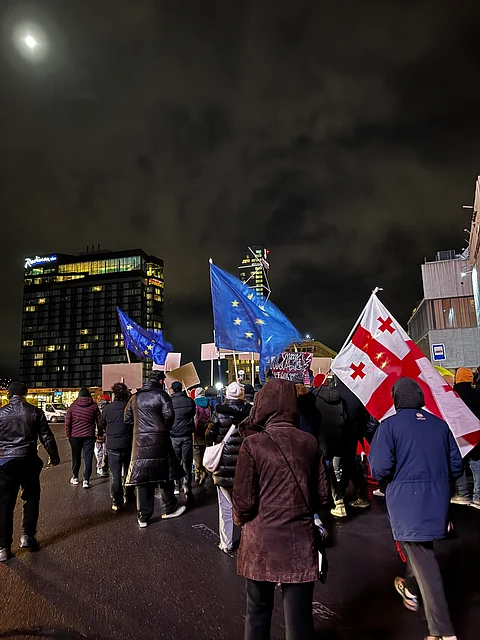

A revised Foreign Agents Registration law came into effect in Georgia on Sunday, significantly strengthening measures introduced in a previous version passed last year.
The law, which was passed in April, replaces the earlier Law on Transparency of Foreign Influence, enacted in August of 2024. That legislation triggered widespread protests across the country.
Under the previous law, any non-governmental organization (NGO) or media outlet receiving more than 20% of its funding from foreign sources was required to register as an “organization serving the interests of a foreign power.” Violations were punishable with financial penalties.
The newly enacted version expands those requirements to include individuals and introduces harsher penalties, including potential prison sentences of up to five years for failing to register. It also introduces new oversight mechanisms, requiring government approval for any individual or organization receiving foreign grants—provisions that were absent in the 2024 law.
Entities or individuals registered as foreign agents will now be subject to increased scrutiny. The government will have the authority to monitor financial transactions, block transfers of funds, and demand detailed financial disclosures, including itemized accounts of how foreign funding is used.
While opposition figures and many Western critics have denounced the legislation as a "Russian-style law"—suggesting it reflects Kremlin influence—the Georgian government maintains that the law mirrors the U.S. FARA statute, which has been in effect since 1938.
Protests over foreign agent legislation first erupted in Georgia in late 2023, after the government expressed concerns over rising foreign influence. Those protests, which authorities in Tbilisi claim were themselves financed by foreign actors, prompted the government to temporarily shelve the initial proposal.
In 2024, however, the ruling Georgian Dream Party renewed its efforts and successfully passed the law in May, despite sustained and at times violent demonstrations.
Following the November 2024 elections, which saw a decisive victory for the Georgian Dream Party and the departure of pro-European, French-born President Salome Zourabichvili—who had vocally supported the protests—the government has moved to further entrench the legislation.
Since then, protests have become notably smaller and less coordinated. Analysts suggest this may be due to a reduction in foreign funding for opposition groups after the law’s implementation.